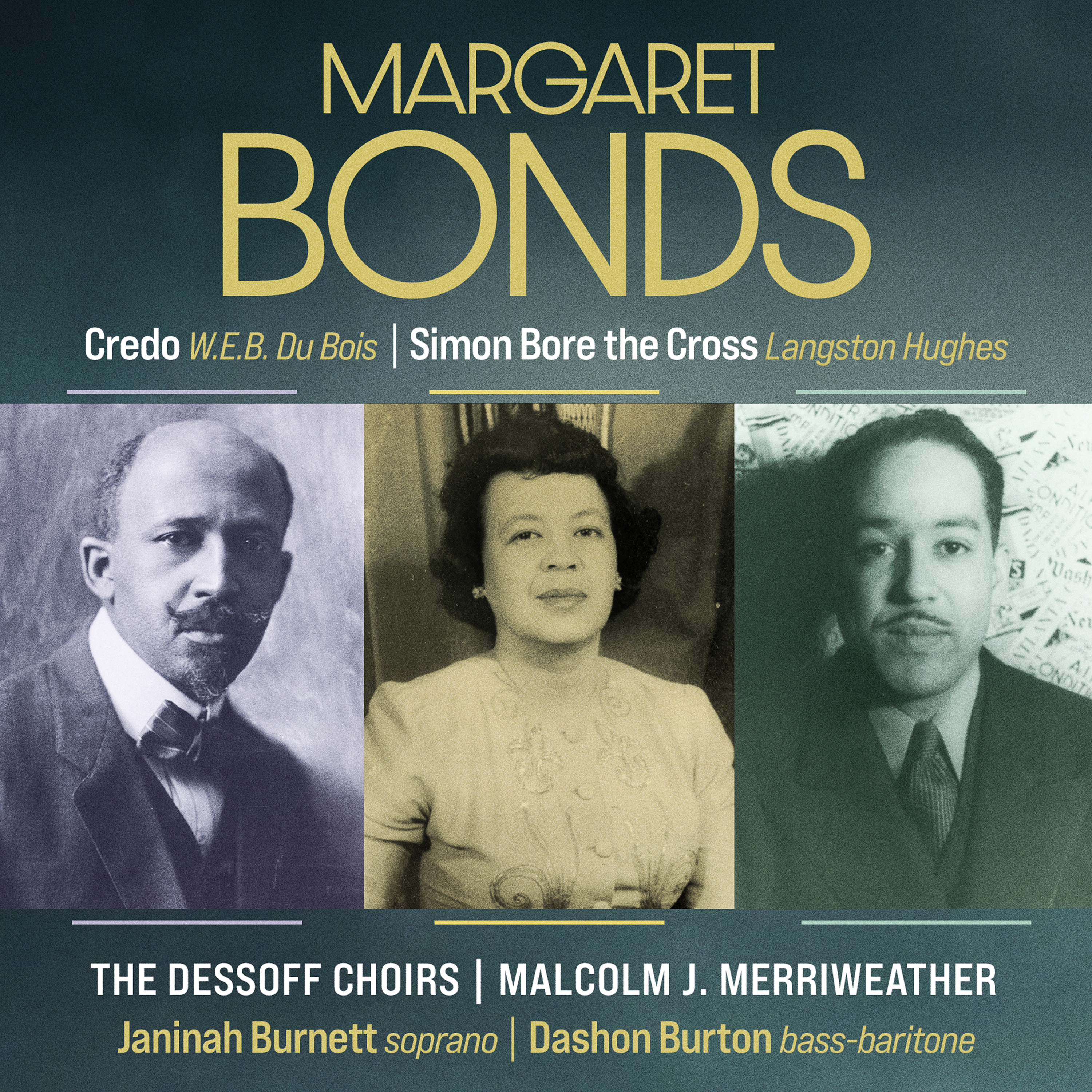The Best of Bonds
So far...
Of course, I haven't heard much from the female African-American composer, but of the three cantatas Bonds wrote, her Credo is the most cohesively appealing to this listener.
The text comes from W.E.B du Bois. In a musical setting, his words are a little heavy handed, after all each of Bonds' cantatas contain a message, yet this aspect doesn't lessen the musical impact. These words lay her cantatas in a pseudo-sacred/secular middle ground, with a focus on race and biblical stories.
Her music covers a wide range of moods and styles; from the dark and fierce, to the lush and beautiful, and eventually the triumphant. The vocal solos have a spiritual stylistic quality (the African-American music genre, not the religious fervor), but this could be due to the wonderful sounding all-African-American cast of soloists.
Otherwise, these works work on a broadly Romantic canvas with the ever-so-subtlest nods to jazz; no mid-20th Century modernism here. Her music can be sing-songy, in a mode ala John Rutter, but rarely does she ever stay in one mode of musical approach, so her Credo never becomes saccharine nor generic.
Bonds' other cantata, Simon Bore the Cross, is of a heavy, serious nature. Akin to her famous Christmas cantata The Ballad of the Brown King, covered on the blog HERE, the textual subject is of a biblical character with their lineage in Africa. In her Ballad, it was Balthazar, one of the Three Wise Men, while here the focus is on Simon of Cyrene. Both works shed the typical whitewashing of biblical settings, and gives Bonds' race and culture stakes in these familiar Christmas and Lenten tales.
An opening prelude affords the listener a chance to hear the talents Bonds had as an orchestrator. Hers is often of an extrovert, colorful voice, reminding me some of Lili Boulanger, if only in their unexpected approaches to orchestra, and in this particular work, the pipe organ as well. The strains of He Never Said a Mumblin' Word reminds the listener as to the point of this music most effectively, a sort-of thematic device which appears throughout.
At 40-minutes in length, however, I feel Simon Bore the Cross runs a little too long, even if Bonds deals with Langston Hughes' texts most effectively.
What a joy that Avie took up the cause of Margaret Bonds on record, I assume at the behest of director Malcolm J. Merriweather, a strong advocate of the composer. I mentioned in the earlier recording linked above, what a wonderful surprise the Dessoff Choirs are; both hearty and dramatic opposite sweet lyricism, if not in the tippy-top-tier of professional performers. I also sense a firmer orchestra on hand comparatively, although the soloists are equally committed.
One can only hope Avie and Merriweather bring back more of Bonds for us to hear. If she wasn't as prolific in large musical forms as the popular Florence Price, a composer from around the same time, I think I like Bonds' approach to composing more. Of course, I am married to the choral idiom, so my biases are laid out to bare.
Listen on YouTube
Works
Credo (23.36)
Simon Bore the Cross (39.19)
Soloists
Janinah Burnett, soprano
Dashon Burton, baritone
Performers
Ashley Jackson, harp
Dessoff Choirs
Dessoff Orchestra
Malcolm J. Merriweather, conductor
Label: Avie
Year: 2023
Total Timing: 62.58
Credo is a must hear from Margaret Bonds, perhaps her finest work.
This is aided greately by very fine performances and advocacy from Merriweather and the Dessoff ensembles.
Find more Bonds recordings HERE!



Comments
Post a Comment